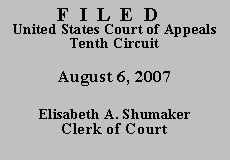

| UNITED STATES OF AMERICA,
Plaintiff-Appellee, v. KEVIN MARTIN, Defendant-Appellant. |
|
waive[d] any right to have the facts that determine the offense level under the Guidelines be alleged in the indictment and found by a jury beyond a reasonable doubt; agree[d] that facts that determine the offense level will be found by the court at sentencing by a preponderance of the evidence and agree[d] that the court may consider any reliable evidence, including hearsay, in making those findings; and agree[d] to waive all constitutional challenges to the validity of the Guidelines.
Id. at 3, ¶ 3. The parties also stipulated in the plea agreement that Martin was in possession of the crack cocaine within 1,000 feet a school, but Martin did not stipulate that his possession within 1,000 feet of a school was done knowingly or intentionally. Id. at 3-4, ¶ 5.
At the change of plea hearing, the district court specifically questioned Martin about the appeal waiver contained in the plea agreement and his desire to waive his appeal rights. The court explained how sentencing would work and informed Martin that if the court imposed a sentence that was higher than Martin expected, he still could not appeal. The court ultimately accepted the plea, finding that it was knowing and voluntary.
At the sentencing hearing, the district court found that Martin's total offense level was 26 and his criminal history category was IV, which yielded an advisory guideline range of 92 to 115 months. The court sentenced Martin to 92 months of imprisonment. The judgment was filed on March 15 and entered on the docket on March 16, 2007. Despite the waiver of appellate rights in the plea agreement, Martin filed a pro se notice of appeal on April 2, 2007.
Martin's April 2 notice of appeal was untimely, because he should have filed his notice of appeal on or before March 30, 2007. See Fed. R. App. P. 4(b)(1). Accordingly, on May 16, 2007, we entered an order partially remanding this case to the district court to allow Martin to file a motion for extension of time to file an appeal under Rule 4(b)(4) and attempt to show excusable neglect or good cause for his late filing. On July 24, 2007, through his counsel, Martin asked the district court to grant him an extension, arguing that he had given the notice of appeal to prison officials for filing on March 28, 2007, and that the delay in filing was their fault, not his.
On July 26, 2007, the district court entered an order finding that Martin had demonstrated excusable neglect or good cause and granting his request to file his notice of appeal out of time. Because the district court has extended the time for filing the notice of appeal and Martin's notice of appeal was filed within the thirty-day extension period granted by the district court, we have jurisdiction over this appeal.
We proceed, then, to Appellee's Motion to Enforce an Appeal Waiver, which the United States has filed in accordance with United States v. Hahn, 359 F.3d 1315 (10th Cir. 2004) (en banc) (per curiam). The United States contends that Martin has waived his right to appeal because he received a sentence within the guideline range and that we should therefore dismiss this appeal. Under Hahn, we consider "(1) whether the disputed appeal falls within the scope of the waiver of appellate rights; (2) whether the defendant knowingly and voluntarily waived his appellate rights; and (3) whether enforcing the waiver would result in a miscarriage of justice." Id. at 1325.
Martin contends that the issue he intends to pursue on appeal does not fall within the scope of the appeal waiver. Martin's docketing statement reflects that the issue his counsel intends to raise on appeal is "[w]hether defendant was within 1,000 [feet] of a school for sentencing purposes." Docketing Stmt. at 4 (lowered from upper case). In his response to the government's motion to enforce, Martin contends that the scope of the appeal wavier does not encompass the district court's "findings of law at the sentencing hearing" and that he "should be able to appeal the Judge's findings regarding Defendant's culpability for being within 1,000 [feet] of a school." Aplt.'s Resp. to Aplee.'s Mot. to Enforce the Appeal Waiver at 3. Martin does not contend that the appeal waiver was not knowing and voluntary or that enforcing it would be a miscarriage of justice.
Based upon our careful review of the plea agreement, transcripts of the change of plea and sentencing hearings, the government's motion to enforce and Martin's response, we conclude that the issue Martin seeks to appeal was clearly within the scope of the appeal waiver. We further conclude that Martin waived his right to appeal knowingly and voluntarily and that enforcing the appeal waiver would not result in a miscarriage of justice.
The motion of the United States to enforce the appeal waiver is GRANTED and the appeal is DISMISSED. The mandate shall issue forthwith.
ENTERED FOR THE COURT
PER CURIAM
*. This panel has determined unanimously that oral argument would not materially assist the determination of this appeal. See Fed. R. App. P. 34(a)(2); 10th Cir. R. 34.1(G). The case is therefore ordered submitted without oral argument. This order and judgment is not binding precedent, except under the doctrines of law of the case, res judicata, and collateral estoppel. It may be cited, however, for its persuasive value consistent with Fed. R. App. P. 32.1 and 10th Cir. R. 32.1.